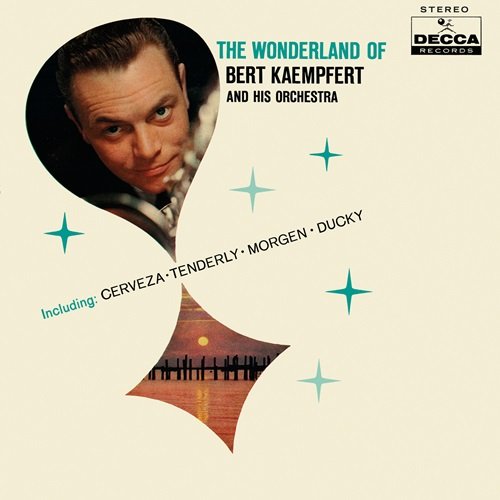Faye Adams - The Very Best of Atomic Adams (Remastered) (2021)
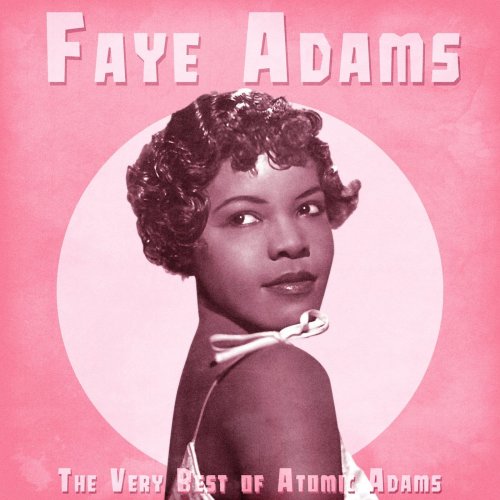
Artist: Faye Adams
Title: The Very Best of Atomic Adams (Remastered)
Year Of Release: 2021
Label: Master Tape Records
Genre: R&B, Blues, Soul
Quality: FLAC (tracks)
Total Time: 1:39:49
Total Size: 512 MB
WebSite: Album Preview
Tracklist:Title: The Very Best of Atomic Adams (Remastered)
Year Of Release: 2021
Label: Master Tape Records
Genre: R&B, Blues, Soul
Quality: FLAC (tracks)
Total Time: 1:39:49
Total Size: 512 MB
WebSite: Album Preview
Disc 1
01. It Hurts Me to My Heart (Remastered)
02. Shake a Hand (Remastered)
03. Takin' You Back (Remastered)
04. Johnny Lee (Remastered)
05. I'll Be True to You (Remastered)
06. Keeper of My Heart (Remastered)
07. That's What Makes My Baby Fat (Remastered)
08. Say a Prayer (Remastered)
09. I'm Goin' to Leave You (Remastered)
10. Welcome Home (Remastered)
11. You're Crazy (Remastered)
12. Step up and Rescue Me (Remastered)
13. I'll Be True (Remastered)
14. Somebody Somewhere (Remastered)
15. I Owe My Heart to You (Remastered)
16. Your Love (Remastered)
17. No Way Out (Remastered)
18. You Ain't Been True to Me (Remastered)
19. So Much (Remastered)
20. My Greatest Desire (Remastered)
Disc 2
01. Sweet Talk (Remastered)
02. I'm so Happy (Remastered)
03. Tag Along (Remastered)
04. Look Around (Remastered)
05. Don't Forget to Smile (Remastered)
06. The Hammer (Keeps a Knockin') (Remastered)
07. Midnight (Remastered)
08. It Made Me Cry (Remastered)
09. Anytime, Anyplace, Anywhere (Remastered)
10. Cry, You Crazy Heart (Remastered)
11. Somebody, Somewhere (Prayin' for Me) (Remastered)
12. I Don't Want Your Love (No More) (Remastered)
13. Crazy Mixed up World (Remastered)
14. Ain't Gonna Tell (Remastered)
15. Anything for a Friend (Remastered)
16. Angels Tell Me (Remastered)
17. Hurts Me to My Heart 2 (Remastered)
18. It Hurts to Be in Love (Remastered)
19. That's All Right (Remastered)
20. Everyday (Remastered)
Dubbed "the little gal with the big voice" by legendary disc jockey Alan Freed, Faye Adams was one of the pioneers of R&B, drawing on the expressive power of gospel music to create a series of deeply moving and poignant records that pointed the way for the emergence of soul. She was born Fay Tuell in Newark, New Jersey circa 1925 -- the daughter of David Tuell, a gospel singer and one of the key figures behind the Church Of God In Christ (COGIC) movement that would later spawn the likes of Billy Preston and Edwin Hawkins. At the age of five she joined her siblings to sing spirituals as the Tuell Sisters, regularly appearing on Newark radio broadcasts. After marrying future manager Tommy Scruggs in 1942, Tuell slowly but surely migrated toward secular music, and by the early 1950s she was a staple of the New York City nightclub circuit; while performing in Atlanta, she was discovered by fellow R&B great Ruth Brown, who suggested she contact Atlantic Records president Herb Abramson. Tuell quickly returned to New York to audition, and Abramson immediately installed her with Joe Morris & His Blues Cavalcade, whose previous featured singer, Laurie Tate, had recently resigned to raise a family. Tuell joined Morris on tour and in late 1952 the group entered the studio, where she made her recorded debut on the novelty "That's What Makes My Baby Fat."
The single went nowhere, however, and the Morris revue returned to the road. While in Montgomery, Alabama, the group recorded his gospel-inspired "Shake a Hand," which Atlantic inexplicably declined to release -- Morris' contract soon expired, and he signed the group to Herald Records, re-recording "Shake a Hand" along with six other tracks at New York's Bell Sound studio. Herald chief Al Silver was so impressed he gave Tuell top billing, re-naming her Faye Adams in the process; issued in August 1953, the single topped the R&B charts a month later, remaining there for eight weeks until it was knocked from its perch by the soundalike "I'll Be True." Together the singles sold close to two million copies, and although Adams' third single, "Every Day," failed to chart, she returned to the number one spot in mid-1954 with the devastating "Hurts Me to My Heart." While Adams dreamed of crossing over to the pop charts, her penetrating ballads found little commercial footing as the first strains of rock & roll took hold -- still, she left Morris' band to mount a solo career, joining the Rhythm & Blues Show tour and appearing alongside the Drifters, the Counts and the Spaniels.
In early 1955, Adams recorded her fifth Herald single "Anything for a Friend," its release coinciding with a week-long headlining stint at New York's renowned Apollo Theater. "My Greatest Desire" followed in the spring, but even though Adams remained a major live draw, her record sales were slipping fast, and two more 1955 releases, "The Angels Tell Me" and "Same Old Me," failed to generate much commercial interest. That same year she also appeared in the motion picture Rhythm & Blues Revue, which premiered in Baltimore in early December; the Freed-penned Teenage Heart opened in 1956, but Adams' next single, "Taking You Back," did not surface until late summer. Although its follow-up, "The Hammer," proved a regional smash in much of the northeast, she nevertheless parted ways with Herald, signing with Imperial to record "Keeper of My Heart," a minor R&B chart hit. "I Have a Twinkle in My Eye" soon followed, as did little-noticed efforts for Lido "("I Waited So Long"" and "That's All Right") and Warwick ("I'm So Happy" and "Johnny, Don't Believe Her"). After a last-ditch effort to court jazz audiences with 1962's Prestige release "Goodnight, My Love," Adams walked away from secular music once and for all, returning to the gospel circuit and refusing to even discuss her classic R&B sides during the decades to come. ~ Jason Ankeny
The single went nowhere, however, and the Morris revue returned to the road. While in Montgomery, Alabama, the group recorded his gospel-inspired "Shake a Hand," which Atlantic inexplicably declined to release -- Morris' contract soon expired, and he signed the group to Herald Records, re-recording "Shake a Hand" along with six other tracks at New York's Bell Sound studio. Herald chief Al Silver was so impressed he gave Tuell top billing, re-naming her Faye Adams in the process; issued in August 1953, the single topped the R&B charts a month later, remaining there for eight weeks until it was knocked from its perch by the soundalike "I'll Be True." Together the singles sold close to two million copies, and although Adams' third single, "Every Day," failed to chart, she returned to the number one spot in mid-1954 with the devastating "Hurts Me to My Heart." While Adams dreamed of crossing over to the pop charts, her penetrating ballads found little commercial footing as the first strains of rock & roll took hold -- still, she left Morris' band to mount a solo career, joining the Rhythm & Blues Show tour and appearing alongside the Drifters, the Counts and the Spaniels.
In early 1955, Adams recorded her fifth Herald single "Anything for a Friend," its release coinciding with a week-long headlining stint at New York's renowned Apollo Theater. "My Greatest Desire" followed in the spring, but even though Adams remained a major live draw, her record sales were slipping fast, and two more 1955 releases, "The Angels Tell Me" and "Same Old Me," failed to generate much commercial interest. That same year she also appeared in the motion picture Rhythm & Blues Revue, which premiered in Baltimore in early December; the Freed-penned Teenage Heart opened in 1956, but Adams' next single, "Taking You Back," did not surface until late summer. Although its follow-up, "The Hammer," proved a regional smash in much of the northeast, she nevertheless parted ways with Herald, signing with Imperial to record "Keeper of My Heart," a minor R&B chart hit. "I Have a Twinkle in My Eye" soon followed, as did little-noticed efforts for Lido "("I Waited So Long"" and "That's All Right") and Warwick ("I'm So Happy" and "Johnny, Don't Believe Her"). After a last-ditch effort to court jazz audiences with 1962's Prestige release "Goodnight, My Love," Adams walked away from secular music once and for all, returning to the gospel circuit and refusing to even discuss her classic R&B sides during the decades to come. ~ Jason Ankeny
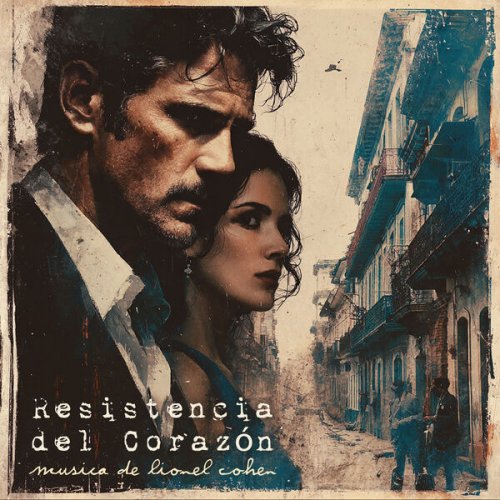
![Chihiro Yamanaka - Ooh-La-La (2025) [Hi-Res] Chihiro Yamanaka - Ooh-La-La (2025) [Hi-Res]](https://www.dibpic.com/uploads/posts/2025-10/1761849497_cover.jpg)
![Steve Dyer - Multipolar (2025) [Hi-Res] Steve Dyer - Multipolar (2025) [Hi-Res]](https://www.dibpic.com/uploads/posts/2025-10/1761825501_ytogdzj35kbcb_600.jpg)
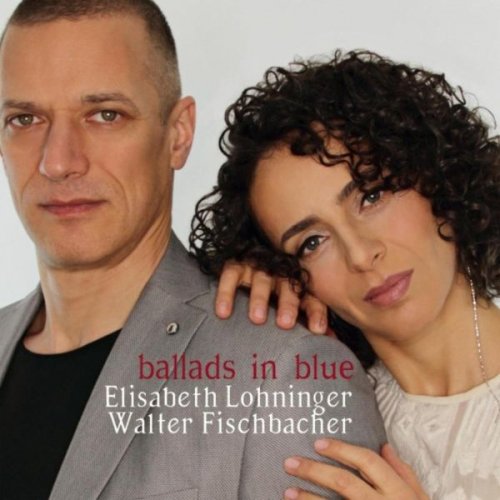
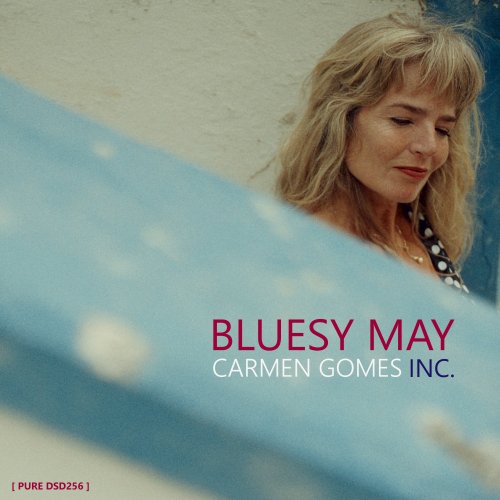
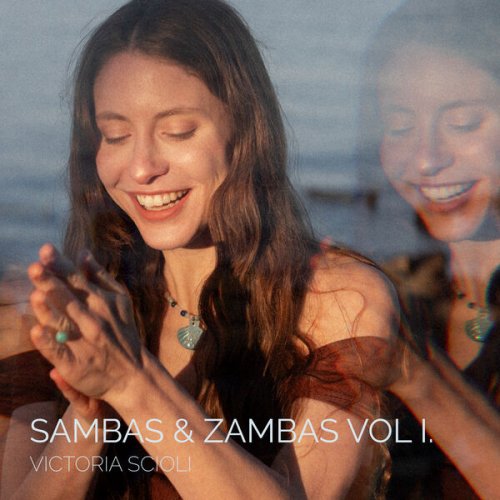
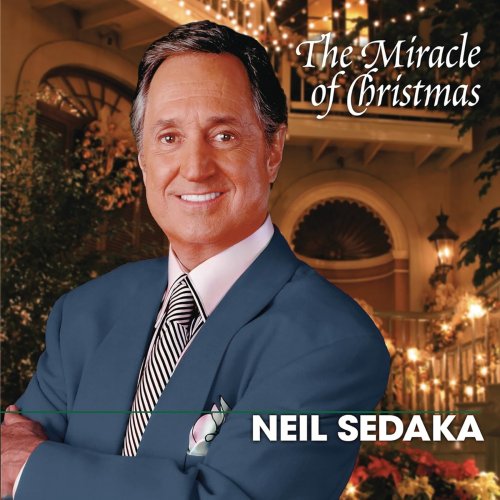
![Hannah Stokes - Right Where I Belong (2025) [Hi-Res] Hannah Stokes - Right Where I Belong (2025) [Hi-Res]](https://www.dibpic.com/uploads/posts/2025-10/1761666350_a3054177716_10.jpg)
